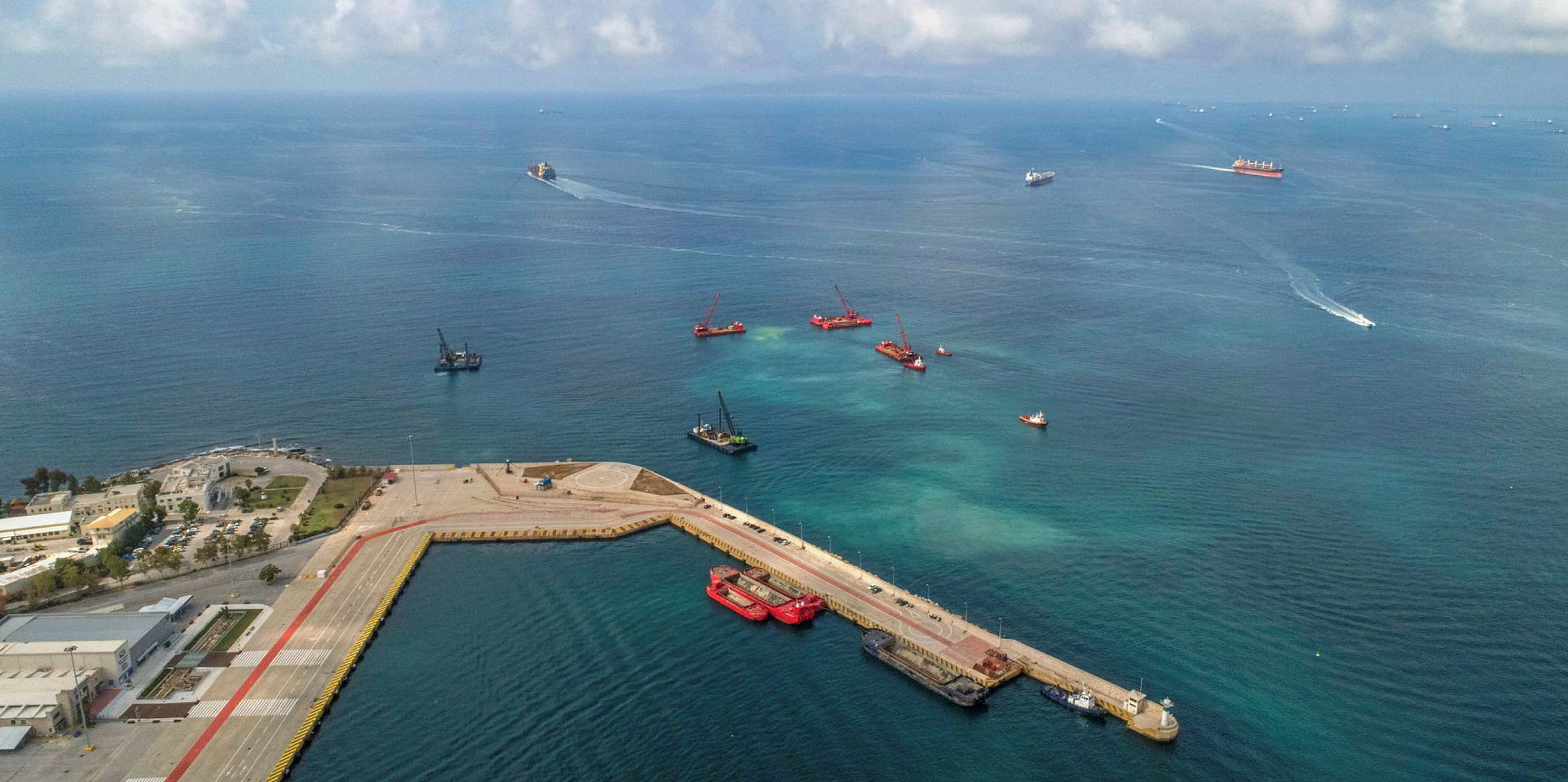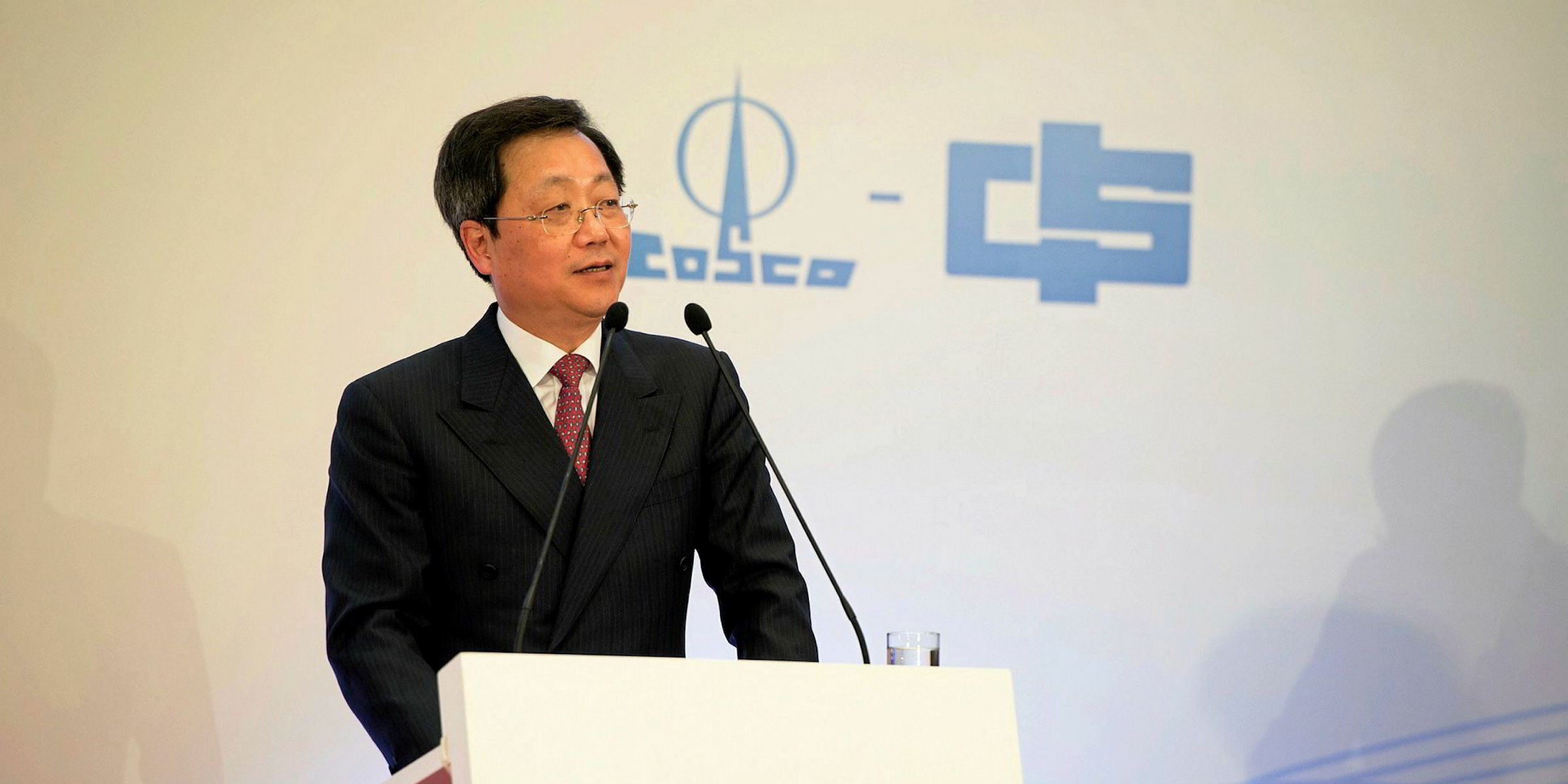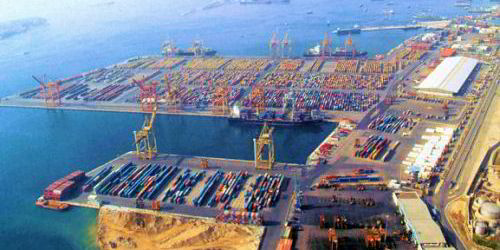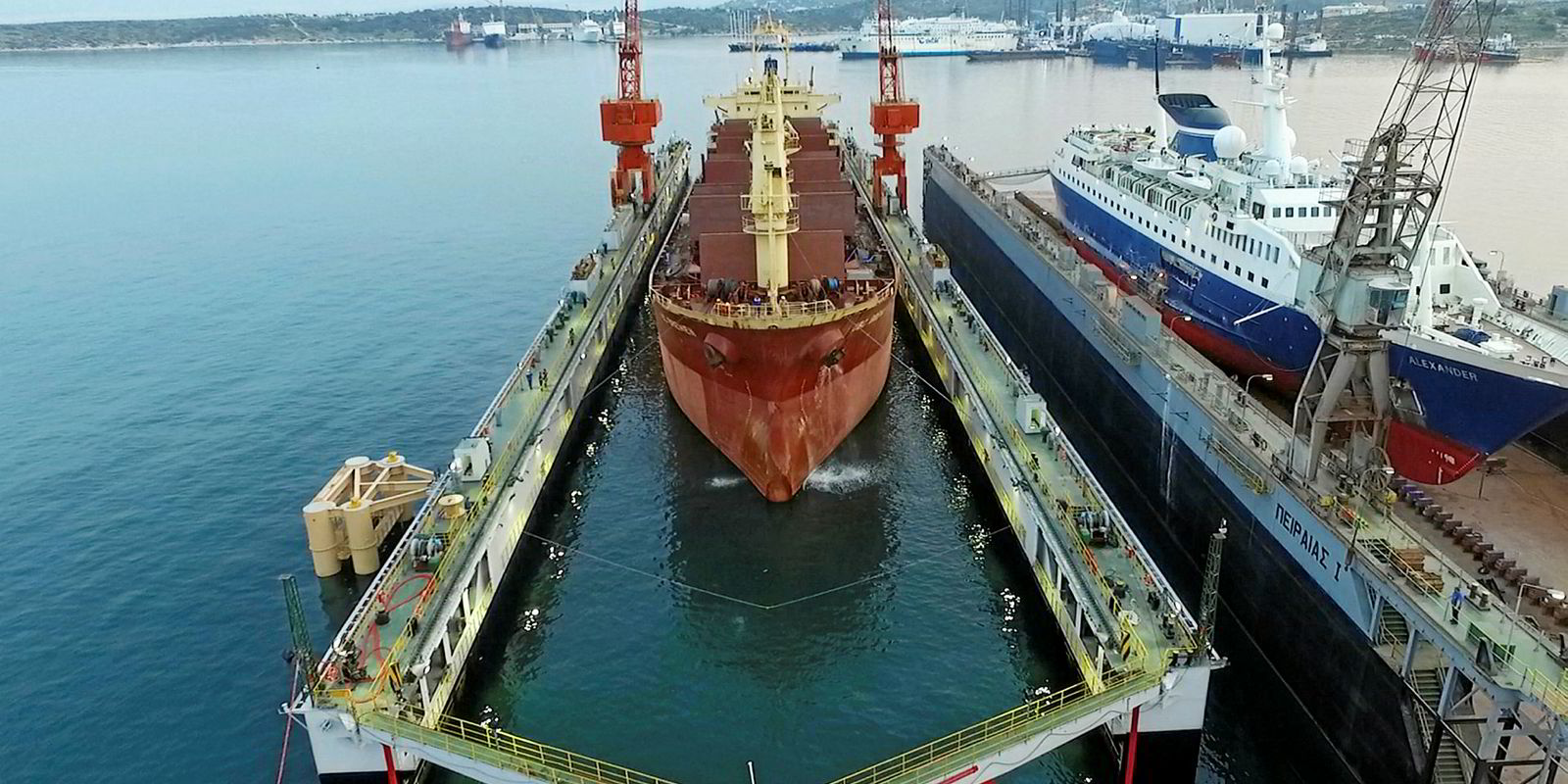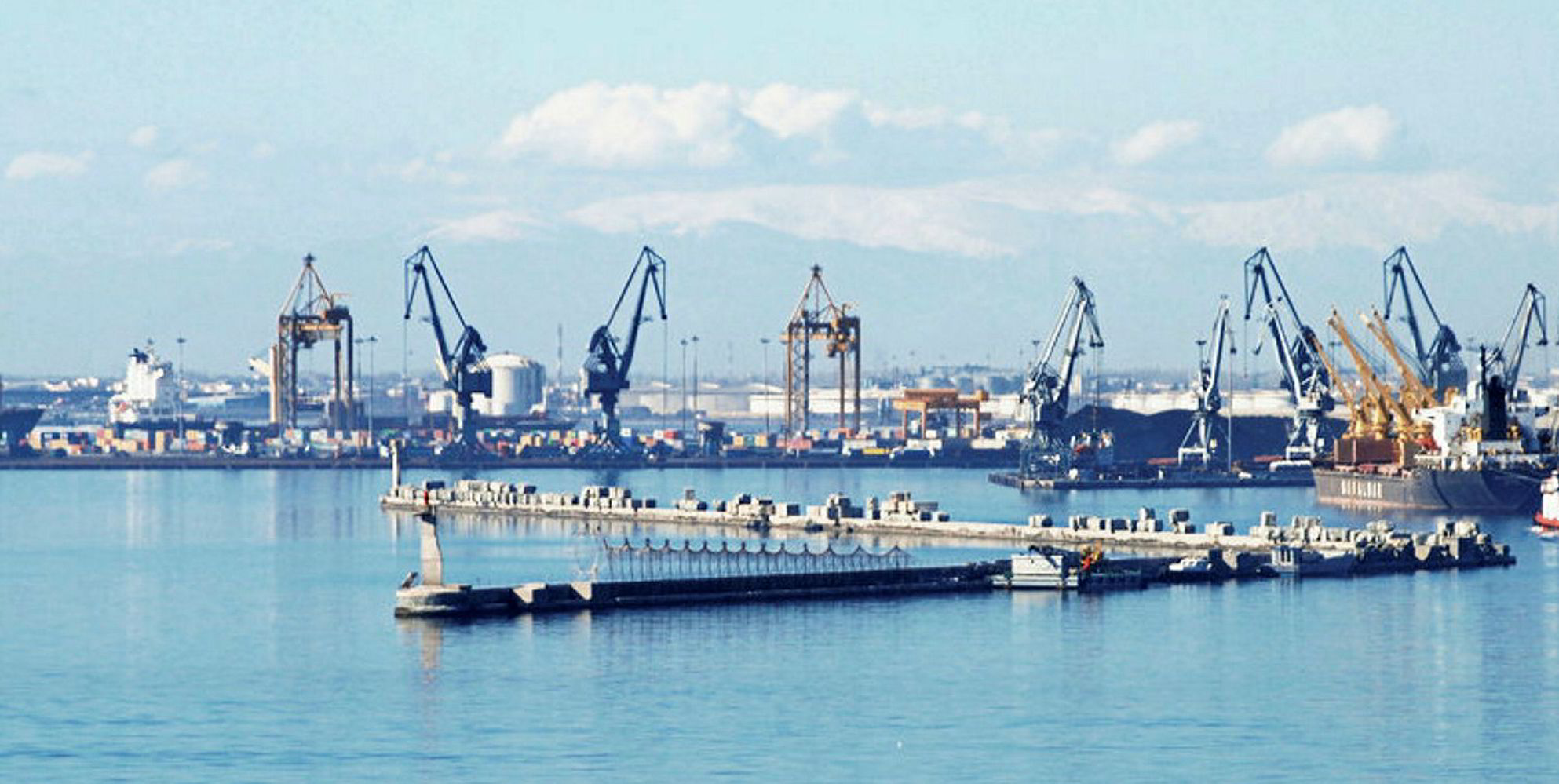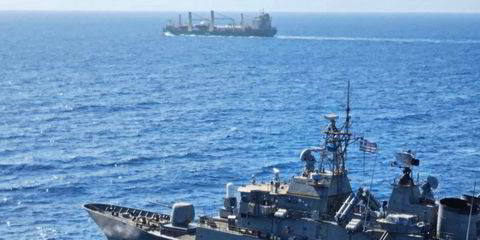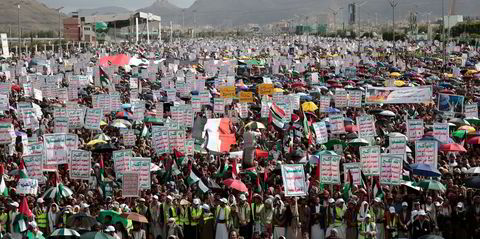Greek judges have suspended dredging works by China Cosco Shipping off Piraeus harbour, threatening to block construction of a €100m ($113m) cruiseship pier.
Local activists fear that the material Cosco is digging up from the sea floor off Piraeus, before dumping it further out in the Saronic Gulf, is toxic and poses a grave environmental threat.
The Council of State, Greece’s top administrative court, ordered all dredging to stop until a full hearing into the matter, possibly as late as October.
Τhis is the second setback Cosco has suffered over the past few months in its ambitious plans to turn Piraeus port into a major, multifaceted European maritime hub.
Last year, the Greek government shelved the company’s proposal to build a new containership terminal in Piraeus after labour unions protested that it would come at the expense of shiprepair activity in the area.
A spokesman at the Cosco-controlled Piraeus Port Authority (OLP) dismissed the plaintiffs’ claims and said it has been working by the book. The dredgers were carrying environmentally “inactive” materials and safely offloaded them in a spot designated by authorities, he told TradeWinds.
A lawyer for the plaintiffs, however, sees things differently. Citing independent university research, she said Cosco’s dredging reactivates hazardous heavy metals that were previously safely embedded under several layers of naturally accumulated sediment.
Project launched the day before virus struck
Cosco began the dredging in April, in the middle of a nationwide coronavirus lockdown. A reason for the rush may have been that the project was on a firm 32-month completion deadline when construction was formally launched to great fanfare on 25 February — a day before Greece reported its first case of Covid-19.
The dredging lays the groundwork for a new terminal expansion project, under which two berthing positions will be built for new generation cruiseships longer than 280 metres.
Building a cruiseship pier in the middle of the worst crisis the sector has ever faced looks counter-intuitive at first. The project, however, is part of €600m worth of plans that Cosco pledged to undertake when it took control of the port four years ago.
Furthermore, Cosco hardly risks any of its own liquidity on the cruise terminal expansion, since the European Union contributes 95% of the funds.
Chinese vs communists
Cosco entered Piraeus in 2008, when it began managing two boxship terminals of the state-controlled OLP. In 2016, Cosco and Greece deepened their cooperation by signing a concession agreement under which the Chinese company took a majority stake in OLP.
Debt-laden Greece was privatising state assets to pay down debt then, while China busily expanded its global reach through the Belt and Road Initiative.
Cosco’s involvement with Piraeus has been generally regarded as a success.
In 2007, Piraeus barely made the top 20 among Europe’s biggest boxship ports, in terms of container throughput. Last year, it was the continent's fourth-biggest, according to figures by PortEconomics cited in an OLP presentation. The company's annual revenue jumped by half over the past five years to reach €149m in 2019.
Cosco, however, is not popular with everyone. Small shipyards in the area were worried it might undercut their business by seeking a shipbuilding licence itself. The government reassured them on 22 June by pledging it would not grant OLP such a permit.
Another thorn in Cosco's side are Greece's communist-affiliated unions agitating against the company in recent years for the "monopolistic capitalism" it is said to be pursuing, to the detriment of workers.
The formal complaint against Cosco’s dredging works was filed by just such an organisation. The communist-controlled Piraeus Labour Centre (EKP), which opposes Cosco’s port development plans in general, has also enlisted support by some environmentalists.
“Cosco-OLP want to turn the entire port into a huge free economic zone, in which labour will work under the conditions of a galley,” the EKP said in a leaflet, calling for a rally against Cosco’s plans to be held on 25 June in Piraeus.
The agitation coincides, and may be connected, with fraught negotiations on a long overdue new wage deal between OLP and its employees, who worry about pay cuts in the wake of Covid-19.
The company, however, has dismissed such concerns. The impact of the pandemic is not known yet and it is therefore “only natural to examine all factors affecting profitability” before deciding what kind of pay rises to accord, it said in a statement on 17 June.
